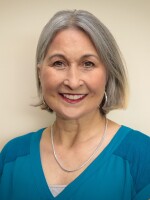Since the invention of Braille nearly 200 years ago, some of the best developments for blind people are smart phones and tablets with adaptations that make it possible for them to navigate their increasingly technical world.
Assistive technology helps blind or visually impaired people do all sorts of things, from counting money, to taking pictures and detecting objects around them.
Justin Cosgrove, assistant principal of the blind elementary and middle school at the Florida School for the Deaf and Blind, said he’s been pleasantly surprised how fast students have taken to tablets, iPads, and iPhones.
He said the school makes sure that their students have the latest in technology like iPads and tablets, but many students also have their own smartphones in hand.
“For a visually impaired student I think it’s opened up technology quite a bit,” he said. Their ability to quickly access the world through voiceover. It has really made their learning a lot more rich.”
Which brings us to Rich Beardsley, a 12-year-old in the 6th grade. He is partially blind and sees very little out of his left eye. Rich said when he first got this phone, he absolutely did not want to put it down.
“It tells you everything on the screen; tells you all my apps, when I’m on Facebook it tells me what people are saying. It tells me the titles of songs," he said.
"The thing reads to me, and I didn’t bring it with me, but you can connect a Braille display using a bluetooth connection."
Beardsley’s iPhone 4S has what’s called “VoiceOver” which is the free, built-in screen reader available on all Apple computers running Mac OS X Tiger or later. It’s part of the operating system itself. It provides speech output and screen magnification for the blind or low-vision user.
Patrick Turnage, is the assistive technology specialist for the Florida School for the Deaf and Blind and a former student at the school. When he returned as a teacher, he was surprised at how far the students had advanced with technology.
“All of our students in grades 8 through 12 have a one-to-one laptop program, meaning that when a student comes in, we assign a laptop to them at the beginning of the school year and they can use it in the class and take it home and use it in the dorm,” he said. “Even in lower grades like 6th and 7th grades, we have laptop carts and iPads available.”
Most of the students in the school continue to learn Braille because the school believes there is a strong link between Braille literacy and employability. The Perkins Braille writers — similar to mechanical typewriters — do not connect to computers. Other technology does connect to computers and is equipped with screen reader software that reads text aloud.

Turnage said it’s this “talking” technology that is a crucial and cost effective tool for the non-sighted.
“They used to make currency/money identifiers that cost $300,” he said.
“There used to be a program you’d buy for your cellphone to read the screen of the cellphone, and that was $300. Apple has included the screen magnification into all IOS and mac products, basically.”
Meanwhile, Patrick shows off his favorite feature on his phone, object recognition, meaning that if he takes a picture of something, no matter what it is, the phone will identify what that object is and tell him what it is.
He pointed his camera at me, and laughed as the phone said, “Picture two is lady holding a microphone.”
“To me, that’s pretty amazing,” he said. “If we can do that now, what are we going to do in ten years?”




